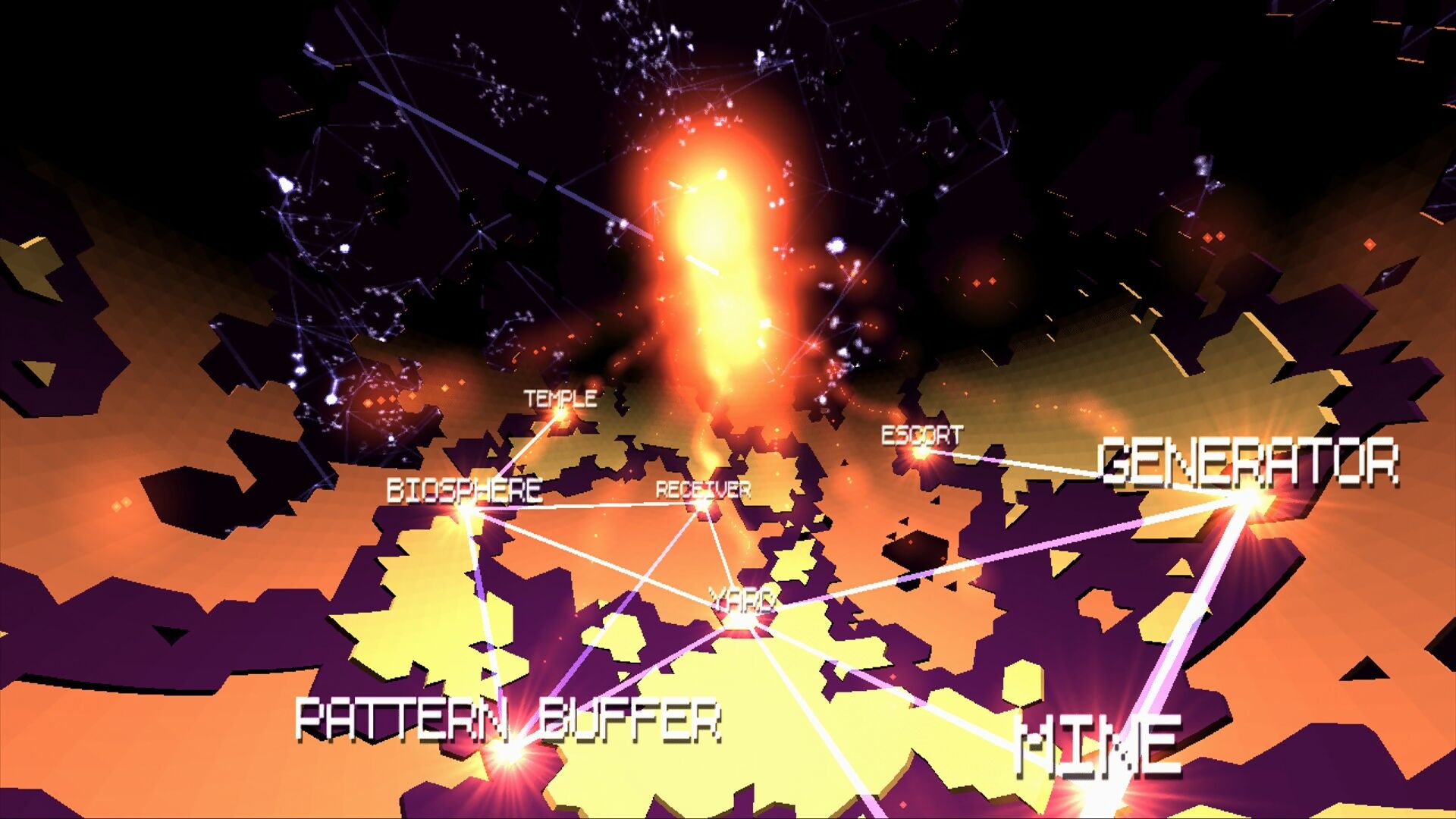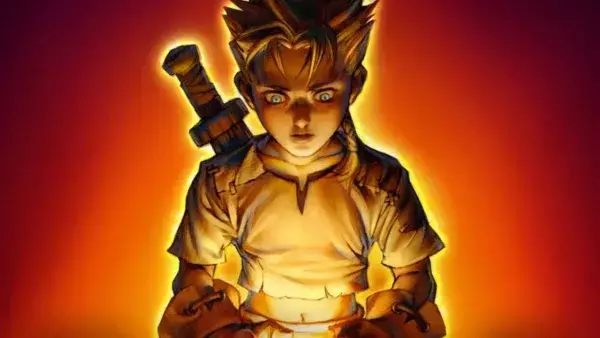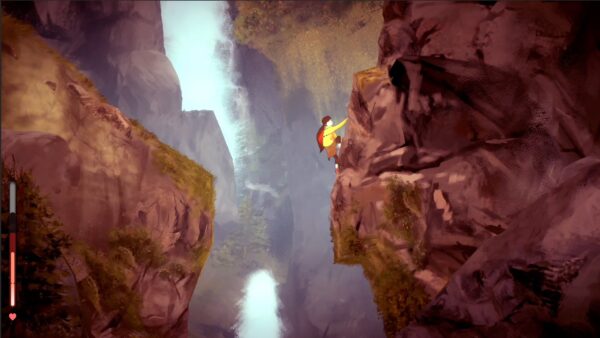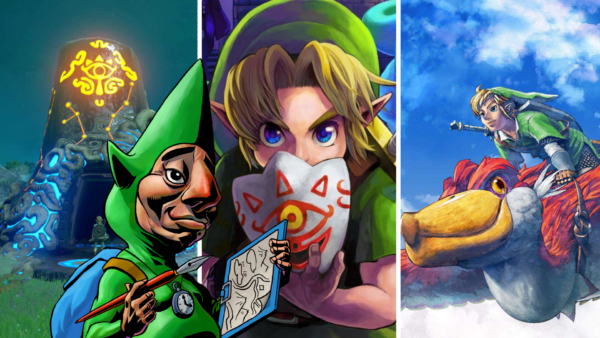
There are four directors running Introversion Software, the developer that once promoted itself as the last of the bedroom coders. But of Mark Morris, Chris Delay, John Knottenbelt, and Thomas Arundel – the talent that helped to bring acclaimed games such as Uplink, Darwinia and DEFCON to life – one stands out as being particularly special.
“If Tom or Johnny came along one day and said, ‘Look guys, I’ve got to go’, it wouldn’t be the end of the world,” says Morris, with endearing honesty. “But if it ever happens that Chris stops making games, then that will be it for the business.” Thankfully for Introversion, there appears to be little danger of that happening.
Delay loves making games and, today, Introversion is in an enviable position. It recently sold the IP for Prison Architect – the studio’s most successful game to date – to Swedish publisher Paradox Interactive, and it’s rather ironic that a title which allows players to construct and maintain a maximum security jail has given them so much freedom.
Gone are the shackles of working on a game for so many years; Prison Architect was first announced in October 2011, and released as a crowdfunded alpha pre-order in 2012. Banished too are the outside pressures of video game development. After all, the game topped $28 million in sales within a few years – more than enough to buy time for a developer as tight-knit as Introversion.

Campaigns in Prison Architect use Polaroid photos to tell their story.
“When we released Prison Architect, we kind of hit the jackpot, really, because it sold – and continued to sell – in mad numbers,” Morris says. “We kept thinking that the rate of sale was going to slow down, but it didn’t.” Sales in excess of two million tell their own story.
A full release in 2015 saw Prison Architect achieve rave reviews, and it won the Best Persistent Game category at the 12th British Academy Game Awards in 2016, awarded by BAFTA. “We’re now just having a bit of fun and waiting for a seed of an idea to come along,” Morris says of the current plan. “There’s no pressure, no need to get an alpha out by September, and we’re enjoying the freedom.”
Building up
There’s a sense that the decision to hand over responsibility for Prison Architect wasn’t an easy one, given that Introversion is made up of a small team which, aside from the directors, also includes a handful of programmers. Introversion, more than most, knows what it’s like to hit rock bottom. It was close to going bust in 2010 and, although there’s little chance of that happening again anytime soon, ridding themselves of such a profitable game will always have inherent dangers.
Even so, Introversion is confident that it’s made the right decision. “With Prison Architect, we found ourselves having an amazing game and an incredible audience, but also a company that was starting to drift in a direction we didn’t really want to take it in,” Morris explains.
“We had loads of conversations about whether we should continue to be ‘the Prison Architect guys’ and whether we should make another Prison Architect game and maybe keep going with it until the end of time. But we felt that wasn’t what we wanted to do as a team, and we wanted to unshackle ourselves from this cash cow.”

The escape mode in Prison Architect turns the tables and has players assuming the role of a prisoner hellbent on getting out of jail.
How much Introversion made from the sale to Paradox Interactive hasn’t been disclosed, but the impact felt by the developer is, Morris argues, worth more than money alone. It’s allowed Delay to remain motivated and eager to pursue new gaming avenues, while ensuring Prison Architect will continue to be enjoyed by fans for some time to come. “We started to think this could be a match made in heaven, because we can step away and work on new concepts, and Prison Architect isn’t left to rot,” Morris says.
Indeed, Introversion believes there’s still a lot more that can be put into the title; it just didn’t want to be the ones to do it. Paradox certainly has experience. Along with Tag Games, it successfully ported the game to mobile devices (while Double Eleven created versions for consoles).
“It’s hopefully in safe hands,” Morris adds. “Paradox has a strong track record in keeping games alive for a long time, and nurturing and building communities, so for us, it was a really exciting move – although it was stressful, too.”
Doing time
But what of the titles to come, and what has Introversion learned from the past? Most recently, in 2017, it released a first-person exploration game called Scanner Sombre which had players assuming the role of a cave explorer. It was critically well-received, with reviewers enjoying the concept of players using an in-game LIDAR scanner to scan the environment and build the world around them. Having to douse the walls with colourful dots took Introversion down an artistic and atmospheric path that could be frightening and mesmerising in equal measure. Unfortunately, Scanner Sombre didn’t fare too well in terms of sales.
“When we developed Scanner Sombre, I think we made some mistakes, and I think those mistakes were down to knowing that, at any point, we could step back and start working on Prison Architect again,” Morris explains.
“This wasn’t especially helpful for Scanner Sombre’s success, and we felt that Prison Architect was preventing us from exploring new ideas. My biggest fear has always been that Introversion would never release another title, and it keeps me up at night. But that, in part, was what I was worried Prison Architect might do to us.”

Scanner Sombre hasn’t fared too well in terms of sales, but it remains an absorbing first-person exploration game.
The strategy now is to take stock and look to Introversion’s strength: the elements which have ensured the company has been able to weather the storm of a changing video game market for the best part of two decades. For that, it’s worth returning to the late 1990s, when the four directors were students at Imperial College London.
Three of them were on the Computer Science course, and Arundel was reading Electrical Engineering. Delay, however, was a particularly keen coder; he’d created Uplink, a 2D cyberhacking simulator, over 18 months, starting in his third year. When he eventually showed it to Morris and Arundel, they were impressed.
After graduation, they saw that Imperial College London was running a competition, offering £10,000 for the best business idea. Morris, Arundel, and Delay believed they could put forward a proposal for a video game company based around Uplink. “I just saw it as a bit of money to pay off some debt,” Morris says. The idea didn’t win but, with a business plan in place (and with Knottenbelt assisting with some tricky technical issues with the game), a decision was made to go one step further and try to sell Uplink to the public.
Turning pro
The young developers first attempted to release Uplink themselves, putting up £600 between them to buy compact discs from a CD plant, produce packaging, and tout the game around the British press.
As Delay explains in a blog post on the Introversion website, a homemade copy landed on the desk of Kieron Gillen, a journalist for PC Gamer who, fatefully, decided to play it. “If you believe the legend, Kieron also handed the disk around the PC Gamer office and told everyone else to play it,” Delay says. Gillen awarded the game 80 percent.

In Darwinia, you control send soldiers into battle against a deadly computer virus.
Suddenly, interest in Uplink boomed, and it led to a distribution deal with the publisher Pinnacle, which got the game into shops. Now that the venture was turning professional, Introversion Software was incorporated in January 2002 and, as sales boomed, Delay turned his attention to another game, Darwinia, that would take three years to make.
“Chris proved very early on that he had a very artistic side to him, and that artistic and creative exploration is what we saw in Darwinia,” Morris says. “It was very different to Uplink, which was a strongly themed simulation game, and it was the start of Introversion creating two separate categories of game, although that has only become apparent as the years have gone by.”
Whether watching or playing, the spectacle of the Darwinians at war was awe-inspiring.
Darwinia began life when Delay took part in the first Indie Game Jam in March 2002. The Game Jam asked attendees to generate and display 10,000 sprites on screen at one time, using an engine created by Chris Hecker. Delay was inspired by the concept and, together with programmer Andrew Bainbridge, whom he’d met at Frontier Developments, he began to create a war game that would eventually become Darwinia.
With its tiny, blocky sprites, Delay’s game had a retro flavour, and mixed elements of god game and strategy with puzzles and action. Darwinia soon became a personal labour of love, as Delay threw in ZX Spectrum-style loading screens and a character named Dr Sepulveda, who bore more than a passing resemblance to Sir Clive Sinclair.
Learning from the past
It’s to this sort of experimentation that Introversion looks set to return. After all, Darwinia was a critical triumph when it came out in 2005, attracting a strong fanbase and, after winning the Seumas McNally Grand Prize of $30,000 at the Independent Game Festival in 2006, helped raise the studio’s profile. “We probably wouldn’t be here if it wasn’t for Darwinia’s success at the IGF awards,” says Morris. “The game also resonated strongly with a core group who really understand what games like Darwinia and Scanner Sombre are about.”
Introversion followed Darwinia with the real-time strategy game DEFCON, which simulated a nuclear war and riffed on Cold War-era movies like WarGames. Casting the player as one of six warring superpowers, it kept a tally on the number of civilians killed. The game was released at a wallet-friendly price, and was another critical success.

On promotional duties for 2006’s DEFCON.
“Strong-themed simulation games have been a running theme for Introversion, and DEFCON sold well,” Morris says. “But switching between games of this type and more artistic tiles such as Darwinia and Scanner Sombre had actually been a psychological requirement.
“Once Chris finishes exploring one kind of technical simulation-based project, he moves on to something else. In each case, we learn things not just about games but the state of the market at the moment. So long as we’re putting out interesting, well-executed, relatively large and not trivial experiences, I’m happy.”
Rock bottom
In that sense, Introversion has few regrets – though Multiwinia, a lighter, multiplayer follow-up to Darwinia, would prove to be a dark chapter for the studio. Its unexpectedly slow sales threatened to push Introversion towards collapse, but Morris maintains that Multiwinia was “borne out of circumstance” – in short, to satisfy Microsoft’s demand for a multiplayer take on Darwinia.
Multiwinia was planned as an Xbox Live Arcade title, but Introversion also worked on a PC version, which launched first. Sales proved devastatingly poor, yet the company was effectively forced to push on with the XBLA version, requiring it to employ more staff and buy extra dev kits in order to get the game through Microsoft’s arduous approval process.

DEFCON’s presentation was simple, but its chillingly statistical depiction of a nuclear genocide certainly made you think.
Introversion accumulated a hefty debt as a result, and figured it would need to sell 30,000 units to pay it back. When the game – named Darwinia+ – eventually came out in 2010, it fell short of the sales target.
“We got rid of all the staff, and the directors went part-time,” Morris recalls. “We weren’t really doing anything, and we only had a trickle of money coming into the business from the back catalogue that was on Steam.
“We owed a relatively large amount of money to a number of firms, and we told them that it would take a year or two to repay them. Their option was to let us do that or push us into administration. I was very heartened that most of the firms forgave some of the debt and told us not to worry about it.”
Lock down
Even so, it was a low point. Introversion was forced to leave its London base – a beautiful four-storey Georgian townhouse – and take stock. This was something of an extra blow, because one of the reasons why the company could still call itself “the last of the bedroom programmers” was down to having that office: two of the rooms actually contained beds. Arundel’s sister, Vicky, who was working as the developer’s marketing manager, even lived there. Suddenly, all of that was gone.
Indeed, it was a pure stroke of luck that eased Introversion back from the brink. A new digital storefront called Humble Bundle emerged, which allowed players to determine the price they wanted to pay for collections of games. It launched in 2010, and a year later, a bundle consisting of Darwinia, DEFCON, and Multiwinia earned Introversion £100,000. Then Prison Architect emerged, and in Delay’s mind, the company has barely looked back since.

Introversion won multiple awards at the Independent Games Festival in 2006 with Darwinia.
Today, rather than follow the same trajectory of music and film – “You’d have a big hit or a big album, and then be under pressure to get the next one out,” Morris argues – Introversion intends to adopt an organic approach to creativity. While it has canned a previously announced title called Order of Magnitude (a sci-fi colony sim), it’s kicking around ideas of a similar theme, but taking time to do so.
“We don’t want to drag an idea out, or select the best idea from a bad bunch, or try to push an idea forward when it’s not ready to be pushed forward, like we did with Scanner Sombre,” Morris continues. The emphasis, he adds, will continue to be on “producing games that haven’t necessarily been done before.” Meanwhile, Introversion is also keen to learn from the past.
“Once upon a time, Chris would come along and say ‘This is the next game idea’, but now he’s a little bit more discriminatory,” Morris says. “He’ll tell us about a good game idea and list the reasons why, and those reasons are generally references back to things with which we’ve had success in the past.” At the same time, the developer plans to look ahead and forecast what is set to be interesting in a few years’ time.
“You see trends which run for a little while, especially in Hollywood, where they’ll go through particular cycles,” Morris begins. “For example, there was a once a glut of near-future sci-fi which felt really fresh because everything up to that point had been long-term sci-fi. They all touched on the same sort of look and feel, and then went away because something new came along.
“I reckon the new things happen because somebody in some obscure Belgian film festival or whatever creates a film with a fresh look, or that’s set in a place that hasn’t been explored for a while. That’s kind of where I want Introversion to be – not a developer that wants to capitalise on what was big last year, but on what is going to be big in two years’ time.”

Introversion: still going strong after almost 20 years.
Certainly, Morris can see Introversion continuing for another 20 years. “I really hope so, and I really want it to,” he says. “I love this industry and how it changes all the time. I love how, every year, there are new challenges and new opportunities, and that people want to play new, interesting, and exciting games.
“Today, a hundred or so games land on Steam every day, and it’s a real but fun challenge to get eyeballs on what you have to offer. I definitely want to keep fighting. I want to keep producing great stuff as long as Chris is having ideas.”





